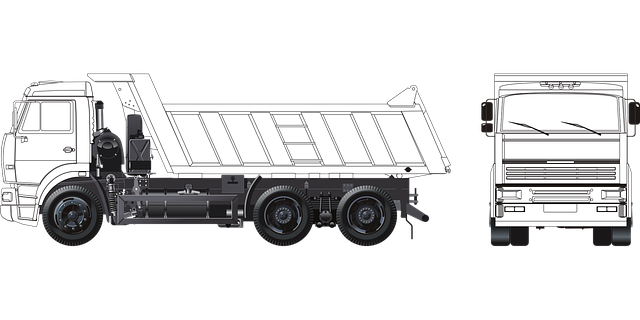Choosing the right truck battery is crucial for ensuring your heavy-duty vehicle performs reliably across various climates and demanding conditions. Factors such as your operating environment's temperature, the electrical load of your truck, and your usage patterns (frequent short trips, long hauls, or extended idles) all play a significant role in determining the most suitable battery for your needs. Higher capacity batteries with greater ampere-hours are essential for trucks equipped with additional systems like refrigeration or telematics. Additionally, a truck battery must have an adequate cold cranking amperes (CCA) rating to ensure dependable starts in any weather. High-quality truck batteries generally last between three to seven years and can offer better value over time by reducing the need for frequent replacements. Always select a battery that is compatible with your specific truck model and usage patterns, as this will provide you with the reliability and longevity needed to avoid unexpected downtime and maintain consistent performance.
When it comes to maintaining a reliable vehicle, understanding the nuances between truck batteries is crucial. This article dissects three key differences that set these batteries apart, offering insights into their roles and performances. From the traditional lead-acid to the cutting-edge lithium-ion options, we’ll navigate through the various types, their maintenance needs, longevity, and cost implications. Whether you’re a fleet manager or an individual truck owner, this guide will equip you with the knowledge to make informed decisions about your vehicle’s power source, ensuring optimal performance and efficiency on the road.
- Understanding Truck Batteries: The Basics and Their Role in Your Vehicle's Performance
- Comparing Lead-Acid vs. AGM (Absorbed Glass Mat) Truck Batteries: Durability and Maintenance Considerations
- Advancements in Lithium-Ion Truck Batteries: The Shift Towards Modern Energy Storage Solutions
- Factors Influencing the Choice Between Different Types of Truck Batteries
- Capacity and Power: Analyzing the Differences in Performance Output for Truck Batteries
- Lifespan and Reliability: How Long Can You Expect Your Truck Battery to Last?
- Cost-Efficiency and Value: Investing in the Right Truck Battery for Your Budget and Needs
Understanding Truck Batteries: The Basics and Their Role in Your Vehicle's Performance

Understanding truck batteries is crucial for maintaining your vehicle’s performance and reliability. Unlike standard automotive batteries, truck batteries are specifically designed to handle the unique demands of heavier and more complex trucks. These batteries must have a higher capacity and durability due to the additional electrical loads from accessories like winches, air compressors, and advanced audio systems. In terms of construction, truck batteries typically feature larger plates and more robust casings to ensure longevity and performance in various environmental conditions. The energy requirements for starting a truck’s engine are also significantly higher than those of a passenger car, necessitating a battery with a greater cold cranking amps (CCA) rating. This ensures that the truck can reliably start in extreme cold without failing, which is vital for professionals who depend on their trucks daily. Regular maintenance and understanding how your truck battery operates will not only extend its lifespan but also contribute to the overall efficiency of your vehicle, ensuring that you’re prepared for whatever the road throws your way. When shopping for a new truck battery, always look for one that meets or exceeds the manufacturer’s recommendations for your specific make and model to guarantee optimal performance.
Comparing Lead-Acid vs. AGM (Absorbed Glass Mat) Truck Batteries: Durability and Maintenance Considerations

When assessing the durability and maintenance requirements of truck batteries, a comparison between lead-acid and AGM (Absorbed Glass Mat) batteries is instructive for fleet managers and vehicle owners. Lead-acid truck batteries have been the mainstay in heavy-duty vehicles due to their robust construction and reliability under various conditions. They are known for their heavy weight, which often correlates with their capacity to deliver consistent performance over time. However, their lifespan is generally shorter than AGM batteries, with frequent charges and discharges leading to a faster degradation of the battery’s ability to hold a charge. In contrast, AGM truck batteries present an advancement in battery technology that offers enhanced durability and longer service life. These batteries are designed with a spill-proof construction, making them ideal for use in all weather conditions. They are lighter than their lead-acid counterparts, contributing to better fuel efficiency. The maintenance of AGM batteries is also less demanding, as they can handle more extreme charging cycles without the same risk of sulfation that affects traditional lead-acid batteries. As a result, when selecting a truck battery, it’s crucial to weigh the differences in durability, weight, and maintenance needs against the intended use and operational environment of the vehicle. The choice between lead-acid and AGM batteries can significantly impact the overall efficiency and lifespan of the truck, thus necessitating careful consideration of these factors.
Advancements in Lithium-Ion Truck Batteries: The Shift Towards Modern Energy Storage Solutions

Advancements in lithium-ion technology have significantly altered the landscape of energy storage for trucks, marking a pivotal shift away from traditional lead-acid batteries. These modern battery solutions offer enhanced performance and efficiency, which are critical factors for heavy-duty applications. The transition to lithium-ion truck batteries is driven by the need for higher power outputs and longer service life, which translates to reduced downtime and maintenance costs for fleets. Lithium-ion batteries provide a more robust and reliable energy source, capable of handling the rigorous demands of electric and hybrid commercial vehicles. The energy density of these batteries is substantially greater, allowing for longer ranges and faster charging compared to their predecessors. This leap in capability directly supports the growing need for sustainable transportation solutions, as evidenced by the increasing adoption of electric trucks across various industries. As the infrastructure for charging continues to expand, lithium-ion truck batteries are set to become the new industry standard, heralding a new era of efficiency and environmental friendliness in the trucking sector. Truck operators are recognizing the advantages of these advanced battery systems, from lower total cost of ownership to the reduction of emissions, making lithium-ion truck batteries an indispensable component for modern, eco-conscious logistics operations.
Factors Influencing the Choice Between Different Types of Truck Batteries

When selecting a battery for your truck, several factors must be considered to ensure optimal performance and longevity. The type of truck battery that best suits your needs depends on various aspects, including the climate in which you operate, the specific demands of your truck’s electrical system, and the nature of your driving routine.
Climate plays a crucial role in battery life due to its influence on battery chemistry. For instance, batteries can freeze in cold climates, which affects their ability to hold a charge. Conversely, extremely high temperatures can also degrade a battery’s performance over time. Therefore, for trucks used primarily in colder regions, a battery with enhanced cold-cranking amperes (CCA) is essential. In contrast, trucks frequently used in warmer areas may benefit from a battery designed to resist the additional stress that high temperatures can place on the lead plates within the cell.
Another significant factor is the electrical load of your truck. This encompasses everything from the engine’s starting system to the auxiliary devices you might use, such as GPS systems, refrigeration units, or even advanced driver-assistance features. Different applications will require different capacities and types of batteries; for example, an electric liftgate might draw more power than a standard radio, necessitating a battery with a higher ampere-hour (Ah) rating to ensure all electrical components operate without issue.
Lastly, the frequency and intensity of usage also impact the choice of truck battery. Frequent short trips, particularly in stop-and-go traffic, can place additional strain on the battery due to repeated cycling between partial states of charge and discharge. In such cases, a battery with improved cycle life will be more resilient and offer longer service. Additionally, if your truck is used for long hauls or sits idle for extended periods, a maintenance-free battery might be preferable to reduce the risk of sulfation, which can form on the battery plates during disuse and hinder performance upon restarting.
By carefully considering these factors, you can select a truck battery that will provide the reliability and durability required for your specific use case, ensuring that your truck’s electrical systems perform optimally regardless of the conditions or demands placed upon them.
Capacity and Power: Analyzing the Differences in Performance Output for Truck Batteries

When assessing vehicle batteries, particularly for trucks, it’s crucial to understand the nuances between different types as they can significantly influence performance and longevity. Truck batteries, designed to endure the demands of commercial and heavy-duty vehicles, present distinct characteristics in capacity and power output compared to their automotive counterparts.
Capacity in truck batteries refers to the total amount of energy the battery can store, measured in ampere-hours (Ah). Higher capacity batteries are essential for trucks that require longer operational times or those with auxiliary systems such as refrigeration units or advanced telematics. These batteries not only power the engine but also support the numerous electrical components found in modern trucks. In contrast, power output is a measure of how quickly the battery can deliver energy, often described in cold cranking amperes (CCA) for starting applications. Truck batteries with high CCA ratings are necessary to ensure reliable starts in various weather conditions, which is a critical aspect given the large size and weight of trucks that require more robust starting power than passenger cars.
The distinction between capacity and power in truck batteries is not merely technical; it has practical implications for fleet management and maintenance. A battery with sufficient capacity will support the truck’s operations over longer periods, while high power output ensures that the engine starts reliably, every time. Understanding these differences is key for fleet operators to select the right battery for their trucks, ensuring optimal performance and reducing downtime due to electrical issues.
Lifespan and Reliability: How Long Can You Expect Your Truck Battery to Last?

When considering the longevity and reliability of a truck battery, several factors come into play that differentiate it from standard vehicle batteries. For starters, trucks are often used in more demanding environments, subjected to heavier loads and longer operational hours, which can significantly impact the lifespan of the battery. Typically, a high-quality truck battery can last anywhere from three to seven years, depending on usage patterns, climate conditions, and maintenance practices. Frequent short trips, especially in extreme temperatures, can drain a truck battery faster than batteries in vehicles that are used for longer, more consistent drives. It’s crucial to select a battery that matches the specific demands of your truck, as well as your driving habits. For instance, if your truck is primarily used for off-road adventures or towing heavy loads, opting for an AGM (Absorbed Glass Mat) or an enhanced flooded battery might be more suitable due to their robust construction and ability to handle deep discharges better than standard lead-acid batteries. Regular maintenance, such as keeping the terminals clean and ensuring a proper charge, can also extend the life of your truck battery, contributing to its reliability and performance over time.
Cost-Efficiency and Value: Investing in the Right Truck Battery for Your Budget and Needs

When it comes to maintaining the performance and longevity of your truck, selecting the right battery is paramount. A truck battery, unlike its passenger vehicle counterpart, is engineered to endure the rigorous demands of a vehicle equipped with larger engines and additional electrical components. In terms of cost-efficiency, investing in a high-quality truck battery can be seen as both a short-term and long-term investment. In the short term, premium batteries may carry a higher upfront cost; however, their durability and reliability often translate to fewer replacements over time, thus offering better value for your money. For instance, a heavy-duty truck battery with advanced technology can start your engine efficiently in cold weather, a feature that is crucial for trucks that are often used in harsh environments. Additionally, the right battery ensures the optimal functioning of accessories and electrical systems, which can save you from unexpected repairs or downtime due to power issues.
Moreover, when considering value, it’s not just about the initial purchase price but also about the compatibility with your truck’s specific needs. A battery that matches your truck’s make, model, and usage pattern will provide the most reliable service. For those who rely on their trucks for work, such as delivery services or construction crews, a dependable battery is not a luxury but a necessity. The cost of a flat battery can lead to significant losses in productivity and efficiency. By choosing a truck battery that aligns with your budget and operational requirements, you ensure that your investment pays off through consistent performance and less frequent replacements. It’s advisable to consult with professionals or refer to the vehicle’s manual to determine the best type of battery for your specific truck model, ensuring that you get the most out of your purchase.
In conclusion, when it comes to selecting the optimal truck battery, understanding the key differences between lead-acid, AGM, and lithium-ion options is crucial for any vehicle owner. Each type offers distinct advantages in terms of durability, performance output, lifespan, and cost-efficiency. Lead-acid batteries have been the traditional go-to, providing reliable service at a lower upfront cost but requiring more maintenance. AGM batteries represent an advancement, offering increased durability and longevity with less maintenance than their lead-acid counterparts. On the other hand, lithium-ion truck batteries mark a significant shift towards modern energy storage solutions, boasting higher capacity, superior power output, and greater lifespan, albeit at a higher initial cost. Ultimately, the choice between these types of truck batteries should be informed by your specific vehicle needs, budget constraints, and usage patterns. Investing in the right truck battery not only ensures optimal performance but also contributes to overall reliability and efficiency on the road.



